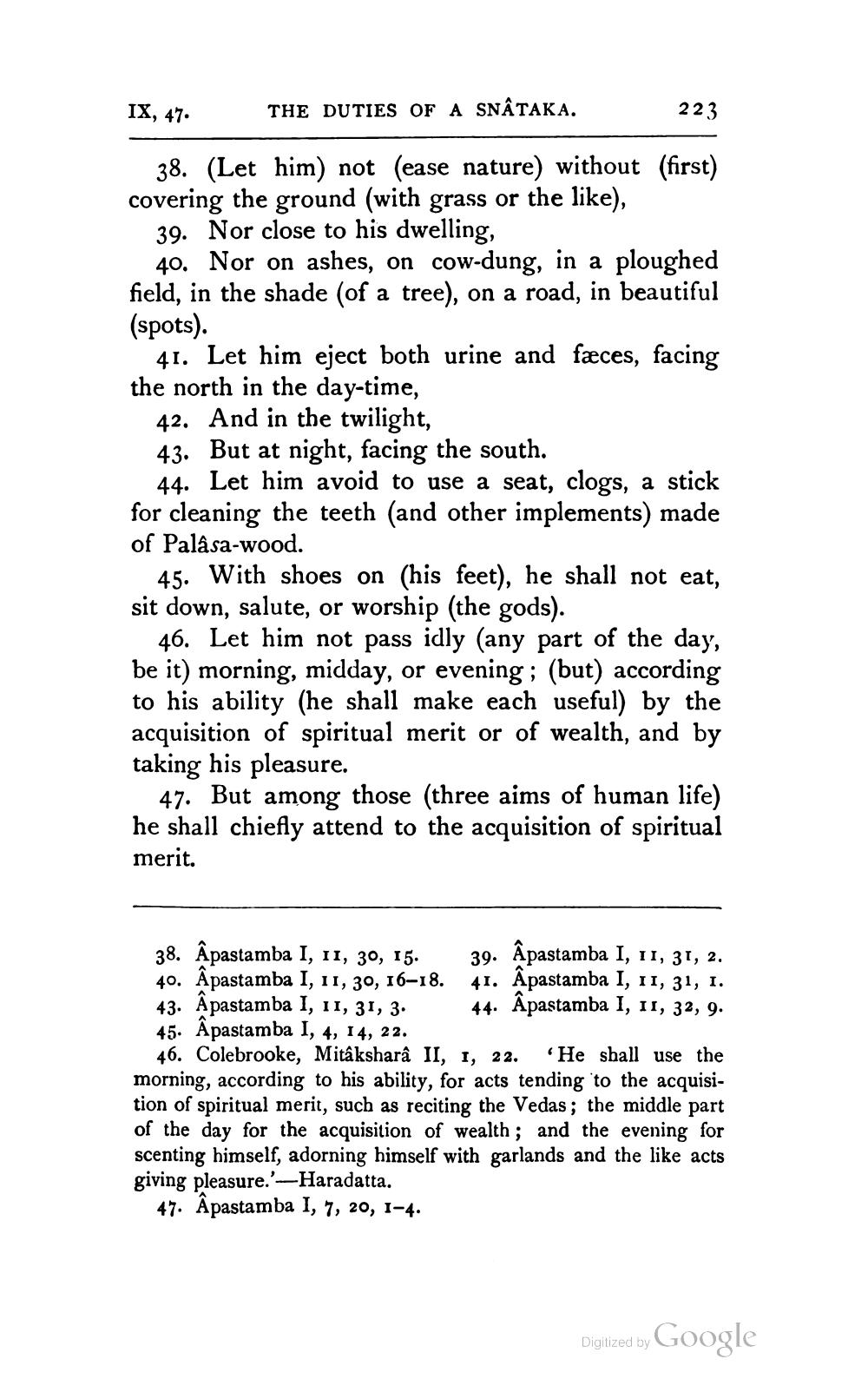________________
IX, 47.
THE DUTIES OF A SNATAKA.
223
38. (Let him) not (ease nature) without (first) covering the ground (with grass or the like),
39. Nor close to his dwelling,
40. Nor on ashes, on cow-dung, in a ploughed field, in the shade (of a tree), on a road, in beautiful (spots).
41. Let him eject both urine and fæces, facing the north in the day-time,
42. And in the twilight,
43. But at night, facing the south.
44. Let him avoid to use a seat, clogs, a stick for cleaning the teeth (and other implements) made of Palâsa-wood.
45. With shoes on (his feet), he shall not eat, sit down, salute, or worship (the gods).
46. Let him not pass idly (any part of the day, be it) morning, midday, or evening; (but) according to his ability (he shall make each useful) by the acquisition of spiritual merit or of wealth, and by taking his pleasure.
47. But among those (three aims of human life) he shall chiefly attend to the acquisition of spiritual
merit.
38. Apastamba I, 11, 30, 15. 40. Âpastamba 11, 30, 16-18. 43. Apastamba I, 11, 31, 3. 45. Apastamba I, 4, 14, 22.
46. Colebrooke, Mitâksharâ II, 1, 22. 'He shall use the morning, according to his ability, for acts tending to the acquisition of spiritual merit, such as reciting the Vedas; the middle part of the day for the acquisition of wealth; and the evening for scenting himself, adorning himself with garlands and the like acts giving pleasure.'-Haradatta.
47. Apastamba I, 7, 20, 1-4.
39. Apastamba I, 11, 31, 2. 41. Apastamba I, II, 31, 1. 44. Apastamba I, 11, 32, 9.
Google
Digitized by




